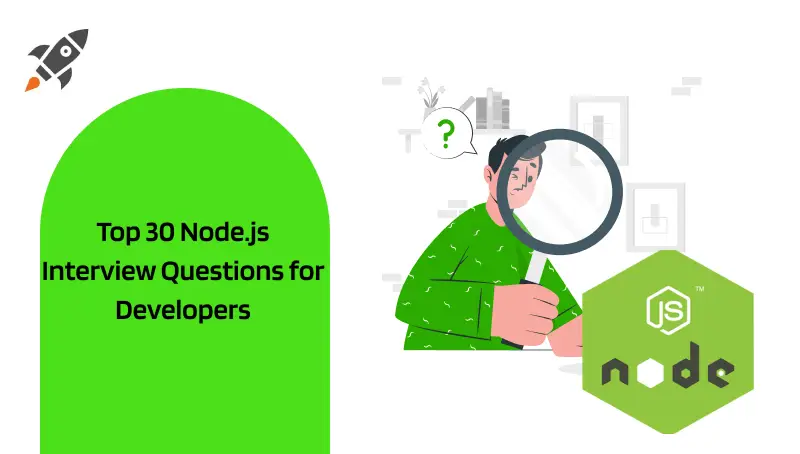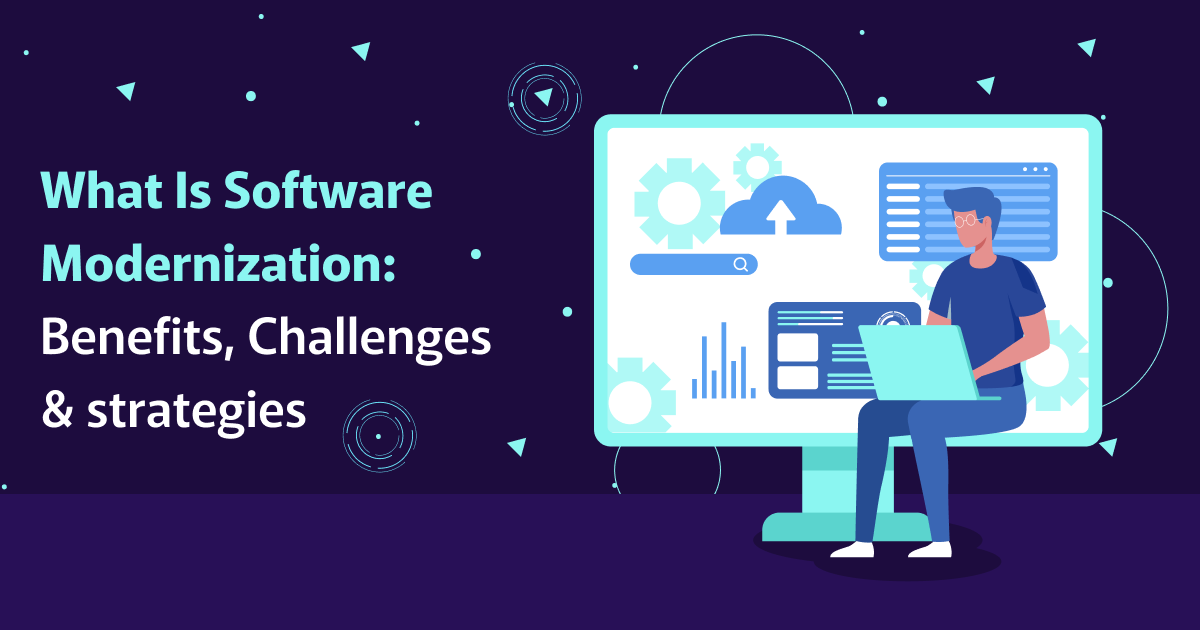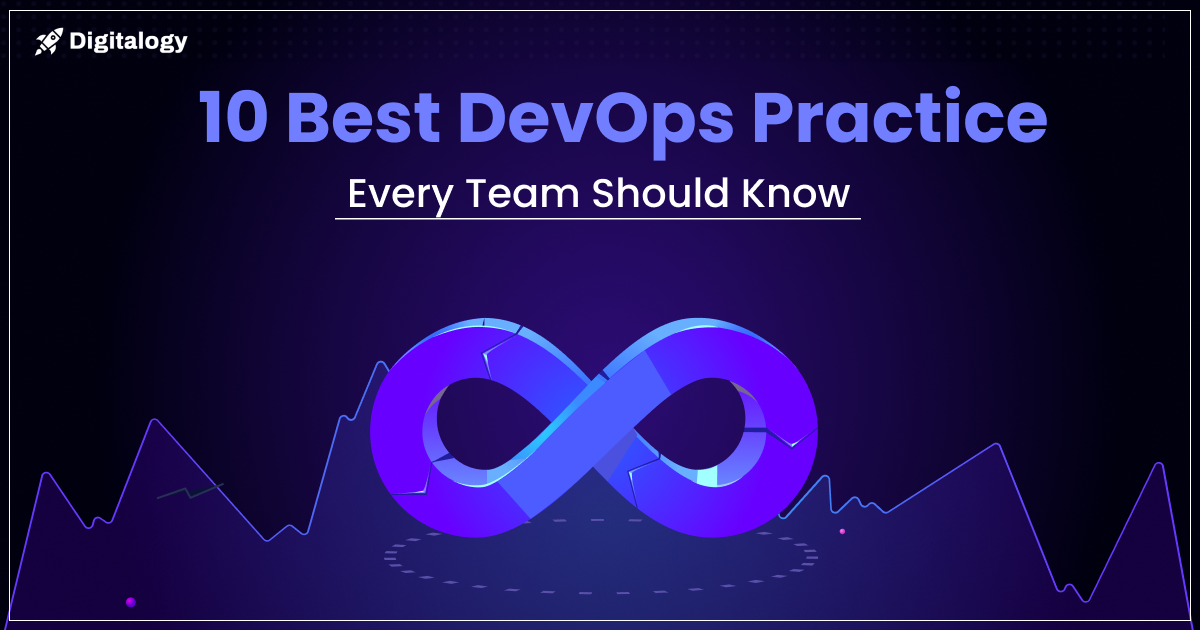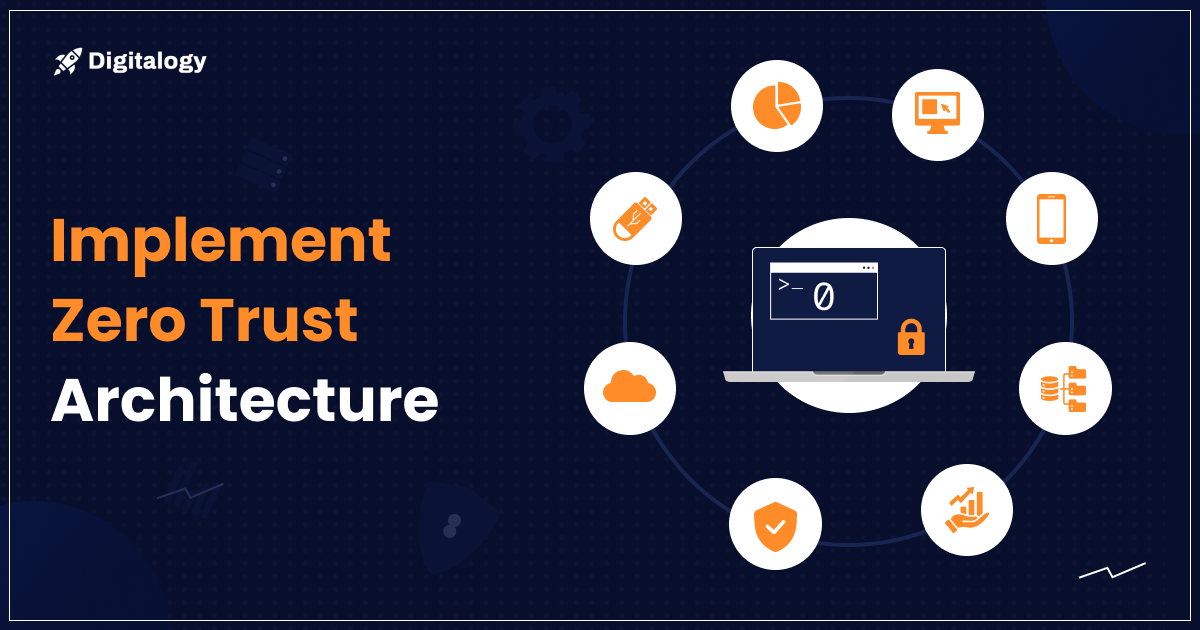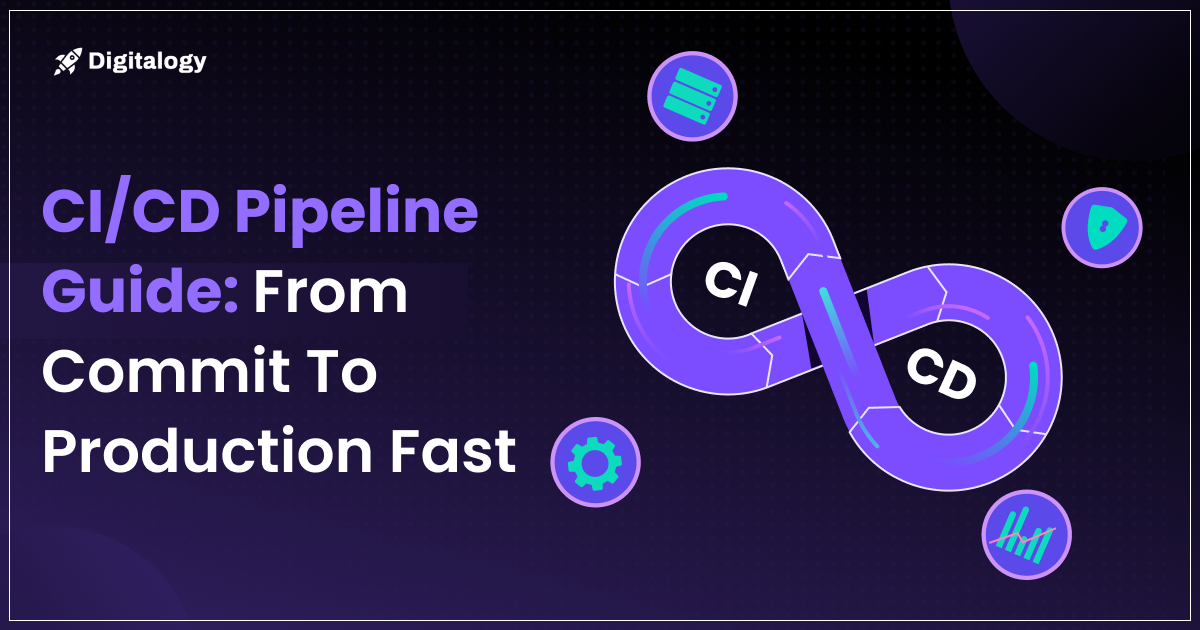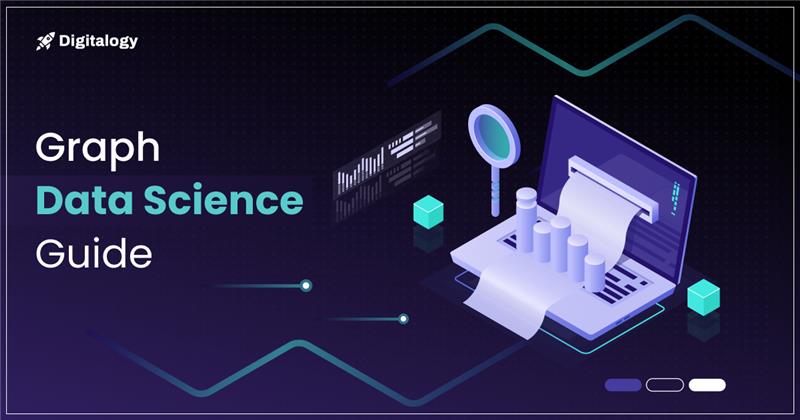Are you a Node.js developer eyeing a higher-paying job? You might sit for multiple interview rounds and panels in different companies for a good job position. Your skills as a node.js developer give you a unique advantage during such demanding interviews.
However, it also pays if there is advanced preparation for the interview. One thing that helps you grow throughout your career as a software developer is continuous upskilling. In upskilling, it is essential to expand your knowledge base. Apart from a generic knowledge base that broadens your skills, it is also essential to increase specific knowledge just before an important interview.
When you are an experienced server-side developer, the skills you accumulate help you in the interview process. However, it is also important to touch upon your skills and knowledge for a quick refresh before an important interview.
The aim of this article is to help you get a grasp on your concepts around Node.js before the extensive interview. Before you foray into the most important questions, look at the most critical skills of a Node.js developer that give you a unique advantage over other candidates.
Skills of a Node.JS Developer
You will find answers to the most frequently asked questions in an interview related to Node.js development. However, not only answers but acquired skills help you prove yourself as the most eligible candidate for the job on the plate. While preparing, it might also be beneficial to explore reliable Node.js development companies, as they often set the industry standards and have insights into the desired skills and experiences. The most desired skills in a Node.js developer are as follows-
- Node.js skills
The most highlighted and essential skill is knowledge of the application of Node.js. You should know how Node.js works and how you can use it to create applications. You should know how exactly the Node.js API works. The Node.js community is extensive, and you can get all the information and help from the official website. It is crucial to keep learning about deep topics related to Node.js before being poised to sit for an interview. Knowledge and awareness about using Node.js come from more experience and field exposure.
- Web application framework
For any developer, the knowledge of good web application frameworks is essential. With the help of good web application frameworks, you can develop applications using Node.js. There are many web application frameworks, and you should specialize in one or two leading frameworks as a developer. The willingness to learn about the most common and popular web application frameworks is a good attitude to display during interviews.
- Security and privacy
Security and privacy provisions are essential for companies today. Any application you develop needs to have good security and privacy provisions to run efficiently. As a developer who works on the server side, you need to know about the common security threats that arise today. Cybersecurity is fast evolving, and it is essential to know the different threats in depth. You should know how to tackle security threats to the application you develop. You should have good troubleshooting skills and learn to use encryption to protect the application from privacy breaches and security threats. As a developer, you should know how to audit your dependencies and strengthen them so that the application runs impeccably.
- Front end skills
Developers with node.js specializations usually work with the back end. However, apart from the back end, you will be expected to know to a great extent about the front end too. Today, companies are looking for multi-faceted assets that can grow into different roles. Moreover, developers are expected to work in teams and show initiative. If you aim for growth and a leadership position, you must broaden your skills beyond the original node.js sphere. Always try to learn about different aspects of application development. This way, you can create coordination in your team and communicate with different professionals similarly.
- Database management skills-
Only coding skills with Node.js are not enough. You need to know about databases that store your code layers and how to manage them. The running of the server side of an application requires the use of a robust database. You should know about different databases and choose the right one for your application development. The responsibility of a node.js developer is not just the creation of code but also the maintenance of its integrity in the long run. This is only possible with skills in database management.
The Topmost Questions of Node.js Developer Interview
When you sit for a job interview, it might feel like you are swamped with questions and do not know the answers to all of them. Truly, there are so many questions an interviewer can possibly ask you during the process. It is not possible to predict way ahead what questions you might get. However, with preparation and confidence, you can easily cover the important topics and do well in the interview. Knowing the most important questions and issues gives you an edge over others during the interview.
Beginner Level Questions
- What is node.js?
Node.js is a server-side script to develop scalable application programs for different purposes. Node.js works with the JavaScript engine of Google and is a powerful scripting language for server-side coding. It is a multi-faceted programming language that runs with Windows, Linux, MacOS etc.
- Do you pay a charge to use Node.js?
No, there is no charge or fee you pay to use Node.js. The MIT-licensed framework is easy to use without any fee necessary.
- What is the purpose of Node.js?
Node.js is a multi-faceted programming language that can create real-time web applications, network applications, and general-purpose applications. The multi-purpose use of Node.js makes it the preferred language for server-side programming. You can also create complex distributed systems of information with the help of Node.js.
- Briefly explain the Node.js advantages for server-side application development.
The coding with Node.js is asynchronous and event-driven, which makes its execution fast. On the other hand, Node.js is also a language with library APIs that are non-blocking. These attributes make the language and the framework very fast in coding and execution. Node.js also works with the Google Chrome V8 JavaScript engine. This engine is very advanced and offers speed and efficiency to the code developed. The node.js framework is highly scalable and is helpful for small and large companies. Whether you want to create a prototype for a startup or a large-scale application for a giant corporation, Node.js delivers uniformly. The speed of the Node.js system is very notable as it does not offer any kind of buffering for data. The developer can efficiently work on multiple projects through Node.js.
- What is the web application structure for Node.js?
There are multiple layers to the web application architecture for node.js. The various layers are called the client layer, based on web browsers and mobile browsers. On the other hand, another layer is the server layer which contains the web server. The architecture also includes the business layer, which has the requirements for request processing. The last layer of the web application architecture is the data layer which contains the databases that store data related to the application.
- How many types of API functions are present in Node.js?
The node.js framework includes API functions of two types. One type is the nonblocking asynchronous ones, and the other type is the blocking, synchronous ones.
- What do you understand about the first-class function in JavaScript?
When functions in the code are used as just about any other variable in the framework, they are known as first-class functions. The first class functions can be passed on to other functions as parameters. One first-class function can also return another function.
- Explain the working of Node.js.
The working of Node.js starts with a request from the client side to the web server to interact with the web application. These requests can be queries or requests to delete or add data to the application. The framework receives these requests and lines them up as Event Queue. After this, the queries pass through the Event Loop for further checks and processing. A single thread is then assigned to the request from the thread pool. The thread pool then assigns the necessary resources and databases to process the requests. The response goes through the event loop to the client when the task is complete.
- How do you manage the packages in your Node.js project?
The management of the packages in a Node.js project can happen with the help of package installers and their linked configuration files. Moreover, we can choose from NPM and yarn type of package installers. These installers work with JavaScript codes and also have extended features that help handle the packages very well.
- Why is Node.js single-threaded?
Node.js is single-threaded and supports asynchronous processing. By giving rise to asynchronous processing, the platform helps create fast and scalable applications for different purposes. Single-thread applications are easier to manage.
Medium-level interview questions
- What is Event-driven programming?
In event-driven programming, events are used to trigger various coded functions. The events can be very simple and small. The events are linked with a callback function that gets executed when the event is committed.
- What is an event loop?
In node.js, the event loop is the process of asynchronous function execution. The event loop is the foundation of the nonblocking input-output callback function.
- What is an event emitter?
An EventEmitter is a class in Node.js that holds all the objects that can emit events. Any event from the event emitter throws up from the objects, and the linked callback functions also follow in execution.
- What is the Package.json file?
The Package.json file is the file that holds all the metadata linked to the project. The Package.json file is found in the root directory of any node application or module.
- How would you use a URL module in the Node.Js project?
The URL module offers tools and utilities to resolve the setting up of the URL and its requests. The URL module deals with URL resolution and parsing. On the other hand, it can also be referred to as the code that splits up the web address and presents it in a readable format for the user.
- What is the Express.js package?
The Express.js package is a framework that uses Node.js to create flexible web and mobile applications.
- How do you create a simple application using Node.js and Express.js?
You can create a simple application using Node.js and Express.js with the following steps.
Create a request object with HTTP language that helps you create query strings, parameters and HTTP headers for the application.
The response object also represents the Express App’s response when it encounters an HTTP request.
- What are streams in Node.js?
Streams in Node.js are objects that help you read and write data continuously. Readable streams are used for reading operations, and writable streams are used for writing operations. On the other hand, duplex streams are used for both operations.
- What is a callback function in Node.js?
A callback function is a function called after a particular task is complete. The callback function prevents blocking and enables the code to run.
- What are the core modules of Node.Js?
There are many modules of Node.js like HTTP, URL, Fs, Path, Util and Querystring.
Advanced-level interview questions on Node.js
- What is REPL in Node.js?
REPL is an acronym that stands for reading Eval Print Loop, and it stands for a computer environment. It is like a Linux console that responds with an output when a command is entered. The loop reads the user’s input, evaluates it, and prints the result. It then continues the loop until a definitive action from the user.
- What does the control flow function do?
The control flow function is an asynchronous code that runs between many asynchronous function calls.
- How does the control flow function work?
The control flow function controls the order of execution, collects data and limits concurrency. The function also monitors the functions and calls the next step in a program.
- What is the difference between Fork () and spawn() methods in Node.js?
The fork and spawn methods are different but the same because the Fork () is a function of the Spawn (). Spawn() launches a new process with the available elements and objects. The Fork () generates a new example of a V8 engine. In the case of Fork (), multiple workers work on various nodes. On the other hand, Spawn () launches a single node.
- What is the buffer class in Node.js?
Buffer class refers to a raw memory allocation that stores raw data linked with the process. As JavaScript is incompatible with binary data, a buffer class is used.
- What is the use of piping in Node.js?
Piping is a process that links the output of one stream with the output of another stream. The piping is normally used to retrieve data from one stream and pass the output to another.
- How do you open a file in Node.js?
The syntax to open a file in Node.js is fs. open(path, flags,[mode] callback)
- What is a reactor pattern in Node.js?
A reactor pattern is a set of nonblocking i/o operations. The pattern culminates in a handler for all I/O operations.
- Explain the test pyramid for the Node.js projects
The test pyramid holds the names and plans for the different kinds of tests for node.js development. The tests include unit tests, including individual unit codes in isolation. Integration tests are the tests that check for the integration between different units. The third type of test part of the Node.js tests is the end-to-end test which checks for every aspect of the project. The test works towards preventing for the client side, the database management side, and the server side. The E2E tests ensure that the app’s integrity is maintained at the end.
- Why does Google use the v8 machine for Node.js?
The V8 engine has some advantages for Node.js that other engines do not have. The V8 engine is open source and written in C++. The engine ensures the fast speed of the Node.js framework in app code execution. The V8 engine is responsible for the fast execution because it changes the code to smarter machine code. The initial purpose of using the v8 engine was to increase speed and compatibility with web browsers.
Conclusion
The Node.js framework is a versatile framework for the design and development of different types of applications. After learning the basics of Node.js, you should look at continuous upskilling in skills and knowledge.
Everyone wants a career graph that only shoots up and up. For this to happen, you must keep brushing up on core and advanced topics. In a rapidly growing sector such as application development, constant personal growth ensures constant career growth.
Hopefully, the questions above will help you secure your dream job as a Node.js developer.

